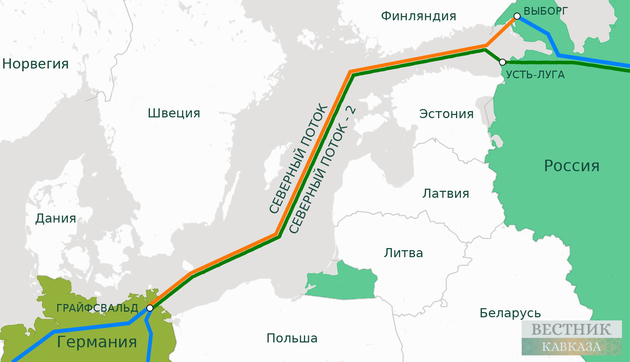During a teleconference, the head of the Austrian OMV, Alfred Stern, spoke about the readiness of the first pipeline of Nord Stream 2 to work.
"The first line was filled with gas, so it is already ready for launch. The project operator also expects that the second line will also be filled with gas by the end of the year," Stern said.
He also drew attention to the fact that "Nord Stream-2" can make an important contribution to the diversity of European gas infrastructure and can help rebalance supply and demand.
Let us remind you that the construction of "Nord Stream-2" was completed in September 2021. Its first line is already filled with gas, and the second will be filled in mid or late December.
Deputy Principal Director for Energy at the Institute for Energy and Finance Alexey Belogoryev noted in an interview with a Vestnik Kavkaza correspondent that gas supplies via "Nord Stream 2" may not start this year. “It depends on the regulatory authorities, that is, on the timing of certification of both the project operator and the gas pipeline itself for its technical compliance with EU standards. Most likely, it will be certified in the first quarter of next year, it is doubtful that this will be done before January 1. The process can be accelerated only if there is a political will of the Europeans," he said.
It is important to understand that "Nord Stream-2" will not be able to radically affect the European gas crisis. "The volumes of supplies through the pipeline in the first months will be small. Rather, its launch will have a positive psychological impact, which may lead to a speculative price adjustment - but it will not change the overall balance of supply and demand in the market. Even with the launch of "Nord Stream-2" before the end of the winter period, at least until February, gas prices in Europe will be very high, as indicated by current futures," Aleksey Belogoryev noted.
“The situation with gas in Europe can be can be corrected by an increase in the filling level of European underground gas storage facilities, but now a period has already begun when gas is mainly taken from gas storage facilities, and injection is quite problematic here. That's why, I do not think that it will be possible to do something to improve the situation in the near future. The conclusion of additional long-term contracts for the supply of liquefied gas is also very problematic. Russia has little to offer to help Europe," the economist concluded.






